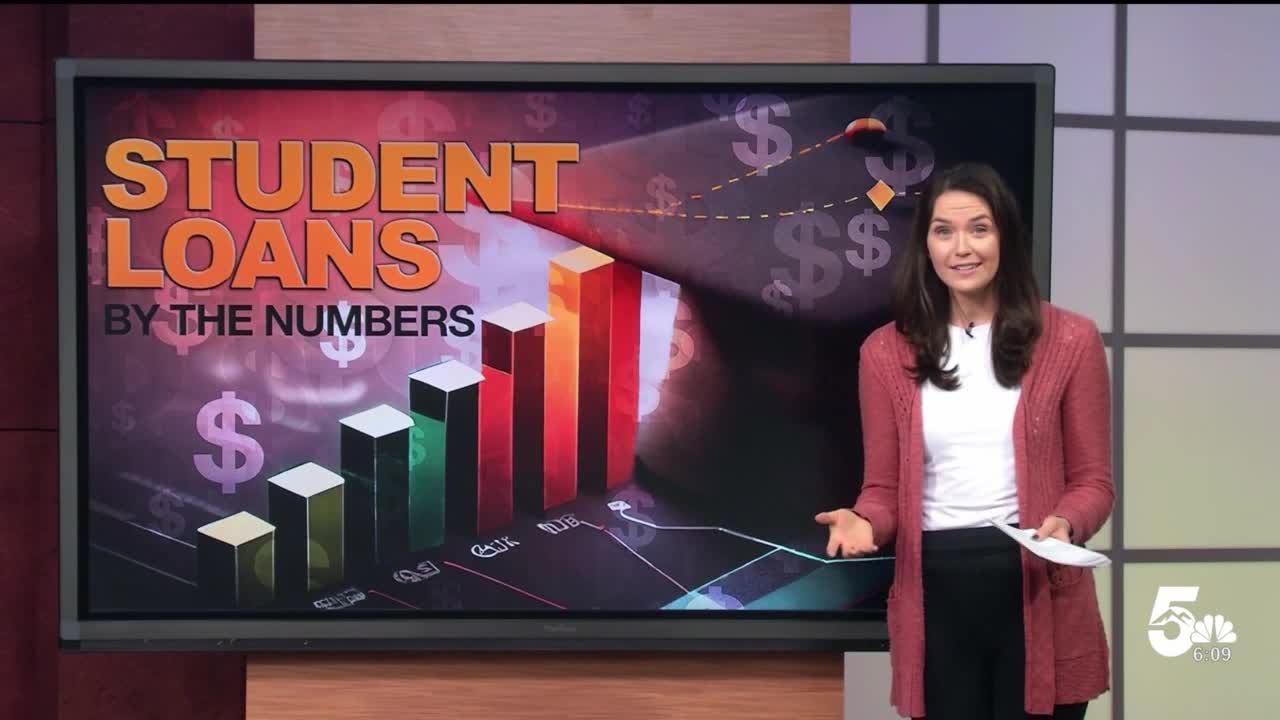COLORADO SPRINGS — After a more than three-year pause on payments, more than 45 million student loan borrowers are now on the hook for payments. That includes more than 750,000 borrowers in Colorado, according to the U.S. Department of Education.
The pause also included a 0% interest rate for borrowers from March 13, 2020, until Sept. 1, 2023.
As payments pick back up, local economist Tatiana Bailey said there are a lot of factors that could have an impact on Colorado's economy.

"If [student loan repayments] were the only thing going on, I'd still have some concern, but my bigger concern is that there are other things going on," Bailey said. "Price levels are higher, even though the rate of inflation has slowed. Ask anybody and they're like, "I can't believe my grocery bill! I can't believe how much more this appliance costs or whatever."
Bailey also pointed to a lag in wage growth, childcare subsidies going away, and higher interest rates causing concern for economists.
With childcare, it could also mean people who have student loan repayments will step out of the workforce.
"Then now you're going from two incomes down to 1 or 1 and a half or something along those lines, right?" Bailey said.
Colorado is considered one of the most educated states in the country, which could have an impact on the student loan payments as well. Bailey said there's important context to note, the number of people with Science, Technology, Engineering, and Math (STEM) degrees versus liberal arts degrees, which don't have as big of a return on investment compared to STEM degrees based on wages.
Economists are predicting about 0.1% hit to the nation's Gross Domestic Product (GDP) for 2023, Bailey admits that doesn't sound like a lot but she said the economy is heading into a slowdown.
"I even question those statistics a little bit because of the ripple effects," Bailey said.
One of the ripple effects? Spending. Bailey said companies like Walmart, Target, and Levi Strauss have revised earning reports for the end of 2023 and 2024, citing the student loan repayments. Large companies estimate discretionary income will come down by about $100 billion a year.
"The extra money that students have had during this moratorium is now getting sucked back into payments to the tune of $100 billion, that's not insignificant," Bailey said, "the entire U.S. economy is about $26 trillion, so again this is a bit of a worrisome thing."
When it comes to the possibility of a recession, Bailey said she thinks at some point the country will hit one between the higher price levels, inflation, child care costs, and student loan repayments. However, she said she doesn't think it will hit the U.S. economy as hard as The Great Recession.
"The main reason I say that is because of the labor shortage. So on the one hand, the labor shortages are hard for businesses, right? But on the other hand, it's kind of good for households because they feel pretty secure in their jobs for the most part." Bailey said.
____
Watch KOAA News5 on your time, anytime with our free streaming app available for your Roku, FireTV, AppleTV and Android TV. Just search KOAA News5, download and start watching.





